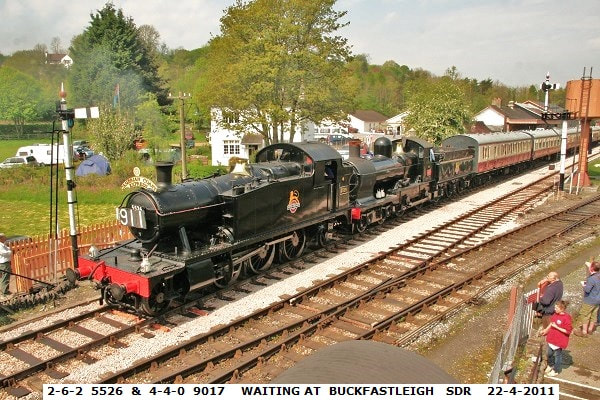A report by Derek Buttivant
Although we are unlikely to see these units in the west, the concept is an interesting one and might have wider applications in the future. The following is an extract from Porterbrook's description of the trains:
The Class 319 Flex concept is designed to create a bi-mode train by fitting two diesel powered alternators, one under each of the driving trailer cars. The diesel alternators provide power to the existing traction and auxiliary equipment to allow the EMU to operate without an overhead or 3rd rail supply. The systems will provide power through the train’s DC bus, avoiding any significant changes to the existing equipment and creating a unit capable of operating from a number of different power sources whilst maintaining its full capabilities on electrified routes.
The plan is to convert some of the fleet of class 319 units previously in service on Thameslink where their 25kv ac overhead and 750 volt dc third-rail capability was the key to operating services across London from 25kv networks north of the Thames and the Southern third-rail network to the south. In a press release dated 19 April, GWR has announced their acquisition of nineteen of the Flex units and the significance of this is considerable, for example, being able to operate between Reading and Gatwick Airport where most of the route has third-rail electrification but the section from Wokingham to Ash is not electrified. At the same time, these units will be able to use the 25kv system out of Paddington - but could, if required, operate along the Thames valley branches which, under present plans, are to remain unelectrified. GWR's press release describes the company's plans:
Great Western Railway and Porterbrook to introduce the UK’s first tri-mode train
The first fleet of trains able to run on overhead and third-rail electric lines, as well as under their own power, will be introduced onto London and Thames Valley services next year following a deal between Porterbrook Leasing and Great Western Railway.
The 19 Class 769 Flex trains begin to be introduced onto the Great Western Railway network from Spring 2019. This will release a similar number of popular Turbo trains to add capacity in the Bristol area, offering the potential for launching new routes through the city.
This is the latest step in Great Western Railway’s drive to provide more seats across its network and builds on the 8,000 additional seats delivered into and out of London earlier this year.
This innovative fleet of tri-mode trains will operate in four-carriage sets which will be refurbished inside and out, with free WiFi and power at each seat, air cooling, more space for luggage, and new seat covers. Its modern two-engine design will offer a quieter and cleaner experience for customers.
Initially, the fleet will support the introduction of refreshed trains on Heathrow Express services, but will be predominantly be used on routes between Reading and Gatwick, and Reading and Oxford, where the train’s tri-mode can be used to its fullest. However, the tri-mode nature of the train will give GWR maximum flexibility to use them in other areas of the network should they be required.
Final details of exactly how and where the new fleet will be used are currently being drawn up, and expected to be finalised later this year.
GWR Managing Director, Mark Hopwood said: “We are already delivering the biggest fleet upgrade in a generation across the Great Western network, but today’s news shows we have not stopped looking at ways to improve our service for customers by adding extra capacity to our network.”
Mary Grant, CEO of Porterbrook, said: “I am delighted that Great Western Railway have agreed to add our innovative tri-mode trains to their fleet.
These trains will offer GWR greater operational flexibility with reduced operating costs; at the same time their conversion and upgrade will see skilled engineering jobs secured in the UK supply chain.”
How does this affect us?
I think the somewhat hazy connection between the tri-mode announcement and "our area" is that this now looks like the only way to free up more class 165/166 units to cascade westwards following the decision not to electrify the Thames Valley branches and the delay in electrifying from Didcot to Oxford. The 16x units are destined for Bristol and, in turn, class 158s would come further west.
With many thanks to Derek Buttivant for providing us with this important news.
John Cornelius
